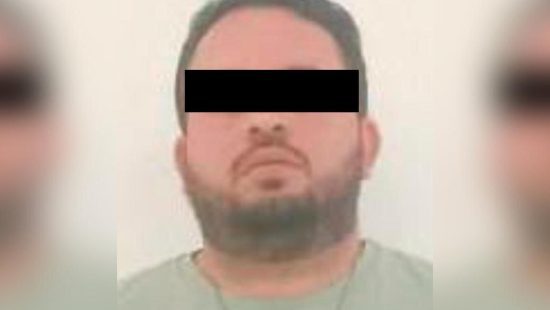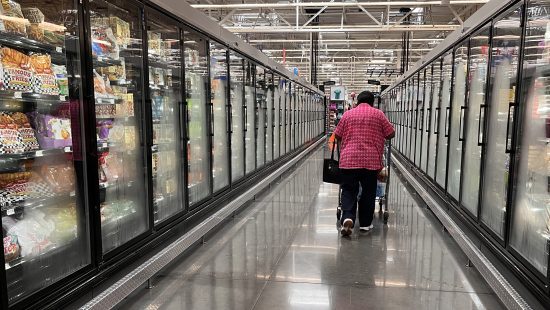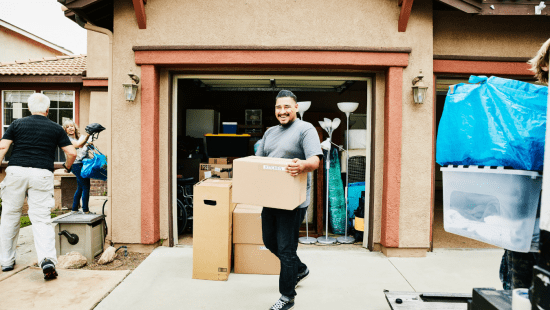All Latino people and service providers interviewed by Human Rights Watch described people living in fear since the raids began, with many withdrawing from publicly visible life.
One woman who has lived in the United States for over 13 years and raised 3 children in the country said in June there had been repeated raids in her neighborhood, including at the local grocery store. She and her children saw federal agents driving through the neighborhood and near their schools. She stopped working to avoid exposure to roving patrols; her husband used sick days to stay home as much as possible.
After hearing warnings ICE might appear, she and her husband missed their children’s graduations, one from high school and the other from trade school. She stopped participating in community work and depended on others to go to the store or run other errands for her. She described her situation as being like “prison” or “quarantine.” She said similar fears are widespread throughout her community.
“What is the sin that we have really committed?” she said. “To us, this is like our country. I’ve always loved this country. This is where I’ve raised my kids. It is where I have given my [life]. We’ve helped this country grow.”
Another woman said in late June she did not fear deportation, but feared being grabbed off the street, incarcerated, and injured by immigration officials. Mostly, she feared being taken from her children. She cares for two teenage daughters with disabilities, including regularly helping at their schools.
She stopped going to their schools. She got sick but cancelled her medical appointment. Her husband has to work, and she was overcome with worry each day that he may not return. She cares for her 2-year-old grandson but feared taking him to the playground. She said she is “not safe anywhere. It’s like I’m in a cave.”
People interviewed described a range of negative impacts from the raids and actions people were taking to avoid them, including forgoing work or staying away from markets, especially Latino markets, that might be targeted. One woman said in June people in her community were stocking up on food to reduce their number of trips outside.
Service providers from two organizations said they created delivery services to take food to people so they could avoid shopping. News reports stated people were staying away from church and community events were being canceled. “We stay in the shadows as much as possible,” one woman said in September.
Unhoused people are particularly vulnerable. People living in encampments on Skid Row said community members were hiding in their tents, not going to jobs or riding on buses. A woman on Skid Row, who has lived in the United States for over 25 years, said dozens of friends and neighbors had been taken by ICE agents since the raids began. “People are just disappearing, and I have no idea where they were taken and what’s happening,” she said. “They’re just gone.”
The pervasive raids, massive numbers of workers incarcerated, and climate of fear have affected the economy in the Los Angeles region and throughout the state. Based on a study by the University of California Merced Community and Labor Center, California’s total number of noncitizen workers declined by 12.3 percent from May to July, while citizen workers declined 4.9 percent. The researchers found the decline was primarily Latino workers.
The raids especially hurt the agriculture and food sectors. Farmers reported workers not showing up. By one estimate, in June, between 25 and 45 percent of the agricultural workforce in Ventura County stopped working, causing delays in food harvest and loss due to rot. Other sectors of the economy that depend on immigrant workers, including child care providers and the garment industry, have felt impacts on working conditions and sales.








